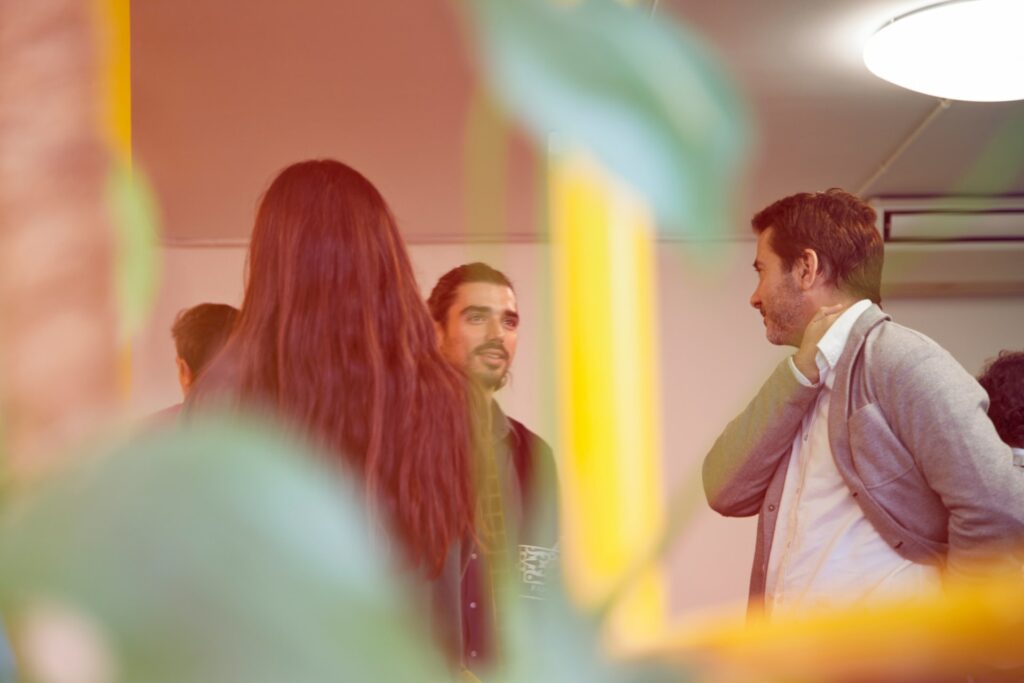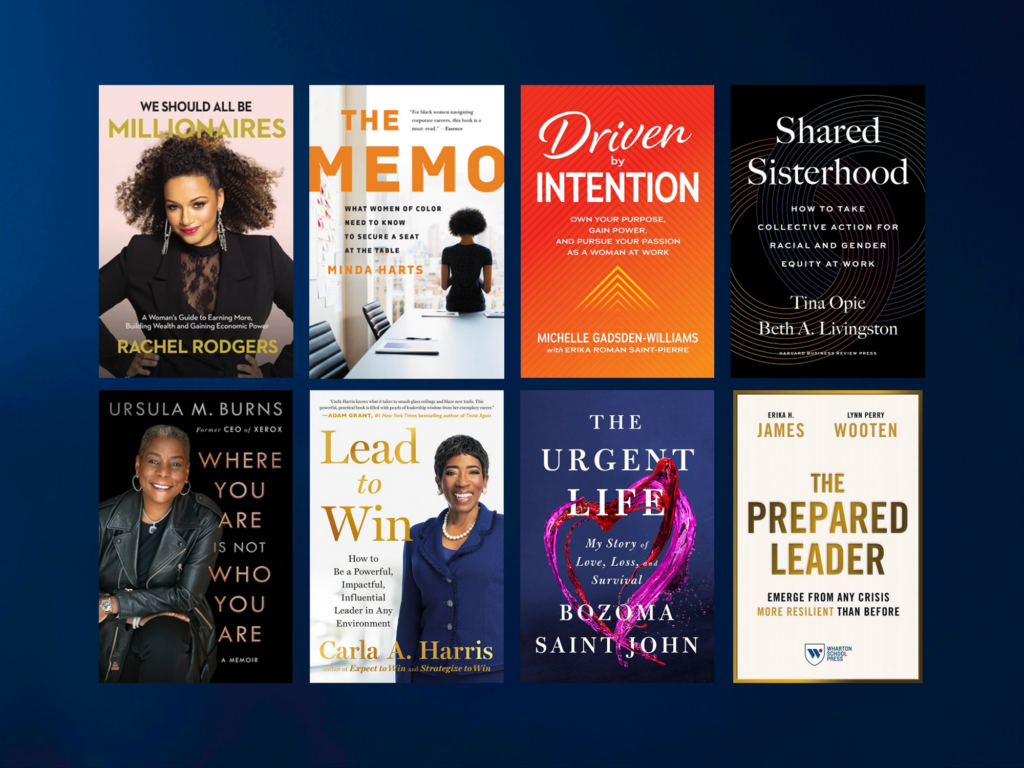How to mingle like a pro in any business scenario

Minglephobia.
While it’s not a word you’ll find in Webster, Jeanne Martinet – aka “Miss Mingle” herself has spent years researching the subject and is confident that it’s a very real and relatable phenomenon.
Martinet has built her career on crafting the solutions for making the best of any social situation. The third edition of her book, “The Art of Mingling,” was released in 2020 and offers readers an up-to-date guide for learning the skills to master any room, sail through an awkward gathering or even become the life of the party. Titled “Mingling With The Enemy,” it tackles navigating interactions in today’s polarizing world. She’s shared her humor and mingling know-how on hundreds of TV and radio shows, including NBC’s “The Today Show,” “The CBS Early Show,” NPR’s “Morning Edition,” and WHYY’s “Radio Times,” and says she’s amazed how even the most well-spoken, seemingly outgoing professionals can struggle with the concept of mingling.
“Know that almost everybody including Katie Couric at some point has minglephobia,” she says. “You think you’re the only person who’s afraid of walking into this party, but it’s called being human.”
More comfortable Facetiming than being face-to face? Start sweating when a coworker indicates the next networking event will be in-person? You may be suffering from minglephobia.
But while it’s a fun phrase, social anxiety is no laughing matter, it’s on the rise since the start of the pandemic, and some people who have never experienced it may go through re-entry anxiety – an uneasiness about returning to the old normal of school and the office, hugs and handshakes, social gatherings large and small. It’s a byproduct of social distancing and the remote lifestyle that some have come to embrace over the past few years. It’s also more pervasive now because society is operating in an age of peak polarization. From politics to pronouns, to talks of hot temperatures quickly boiling into a global warming debate – every topic under the sun can feel like a conversation landmine. The good news? There are tips to help take the heat off as in-person interactions resume.
Martinet says the insight she’s gained over the years are now more important than ever, especially since Americans spend a little more than two hours a day plugged into their phones, checking social media and on sites like Facebook, Instagram and Twitter, according to the World Economic Forum.
“Our mingling muscles are atrophied to an incredible degree because of social media, which allows people to believe that they’re more connected than ever before because of all the thousands of people they’re connected to, but they’re really not connected in any real way. So, it’s a trap,” explains Martinet. “Then we had the two years of COVID, which solidified anybody who was already kind of an introvert, or afraid of mingling, now they have a license not to mingle.”
She offers up her top tips to re-enter the world of mingling to succeed in business interactions, even for the most small-talk aversed among us.
Know your triggers.
“Most people know their triggers because all you have to do is think back to the last time you lost your temper at an event, a party or with your family,” says Martinet.
She categorizes triggers into two buckets: pre-existing conditions and current event triggers. Once a person identifies the topics that will set them off, they’re better prepared to be in a good mental headspace to mingle. “You either excuse yourself or you change a topic, but if you know you just can’t handle that particular topic, you just stay away from it.”
Listen with empathy.
Through her research, Martinet has found that most people think they’re good listeners, when in reality, they are listening with half of their brain while the rest of their energy is spent calculating what to say next, where to go next, or what to cook for dinner.
Her reminder for talking to those with vastly different views? Remember we are all human. Tuning in and listening can ease tension and even broaden horizons.
“You have to listen instead of just thinking about what you want to say, try to listen between the lines, try to figure out who they are, why are they saying this? What is their background? Who are they as a person, instead of just reacting right away,” she suggests.
Use humor and storytelling to ease tension and avoid conflict.
“I have a technique I’ve used for years called storytelling as a healing technique,” explains Martinet. “ When you’re in a group of people and something goes amiss, bring out a story that is funny, a story that’s relevant, that you can remember.”
Having a lighthearted anecdotal and personal story ready to share can be a diversionary tactic to break tension and relate to a colleague or acquaintance in the event that a conversation goes south.
Yield without “losing” and know when to exit a conversation with grace.
Martinet’s bottom line in all of her mingling advice is that the only real goal is to have fun, and enjoy connecting with others. If two people aren’t able to find common ground, change the subject or excuse yourself gracefully.
“The second it’s not fun anymore is the second to bail and to change the subject because this is not a town hall meeting,” she says. “So once it’s not fun anymore, it doesn’t matter who’s “ahead,” just bail and do something else.”
For those who are truly terrified of interacting or feel their anxiety is getting the best of them ahead of a big in-person gathering, Martinet offers the nearly fail-proof approach: honesty.
“Go up to a group of people and simply say “hi, I don’t know a single soul here,” you may be amazed,” suggests Martinet. “People will respond to your vulnerability and they will introduce you around. It actually works like a dream.”
While society has been forever altered by the pandemic, social interactions are essential parts of life that provide human connection, personal fulfillment, opportunities for networking and career development. Martinet’s reminder to everyone is that there are ways to successfully traverse any and all hostile territories and come out unscathed and maybe even a little bit enlightened.
“It’s really as necessary for humans as breathing and eating, we really need face to face contact,” Martinet reflects. “You never know what the rewards are going to be until you get there and do it. You can have a conversation that’s 10 minutes long that can change your life.”

Photo by Hivan Arvizu
Follow up with these guest pieces from MBAchic members:
- IE Business MBA Alissa Warne‘s piece on networking at MBA conferences
- UNC Kenan-Flagler MBA Lauren Collalto Rieske’s piece on ways for MBAs to network while social distancing
- HEC Paris MBA Annika Friesen’s piece on unlocking the true power of LinkedIn








